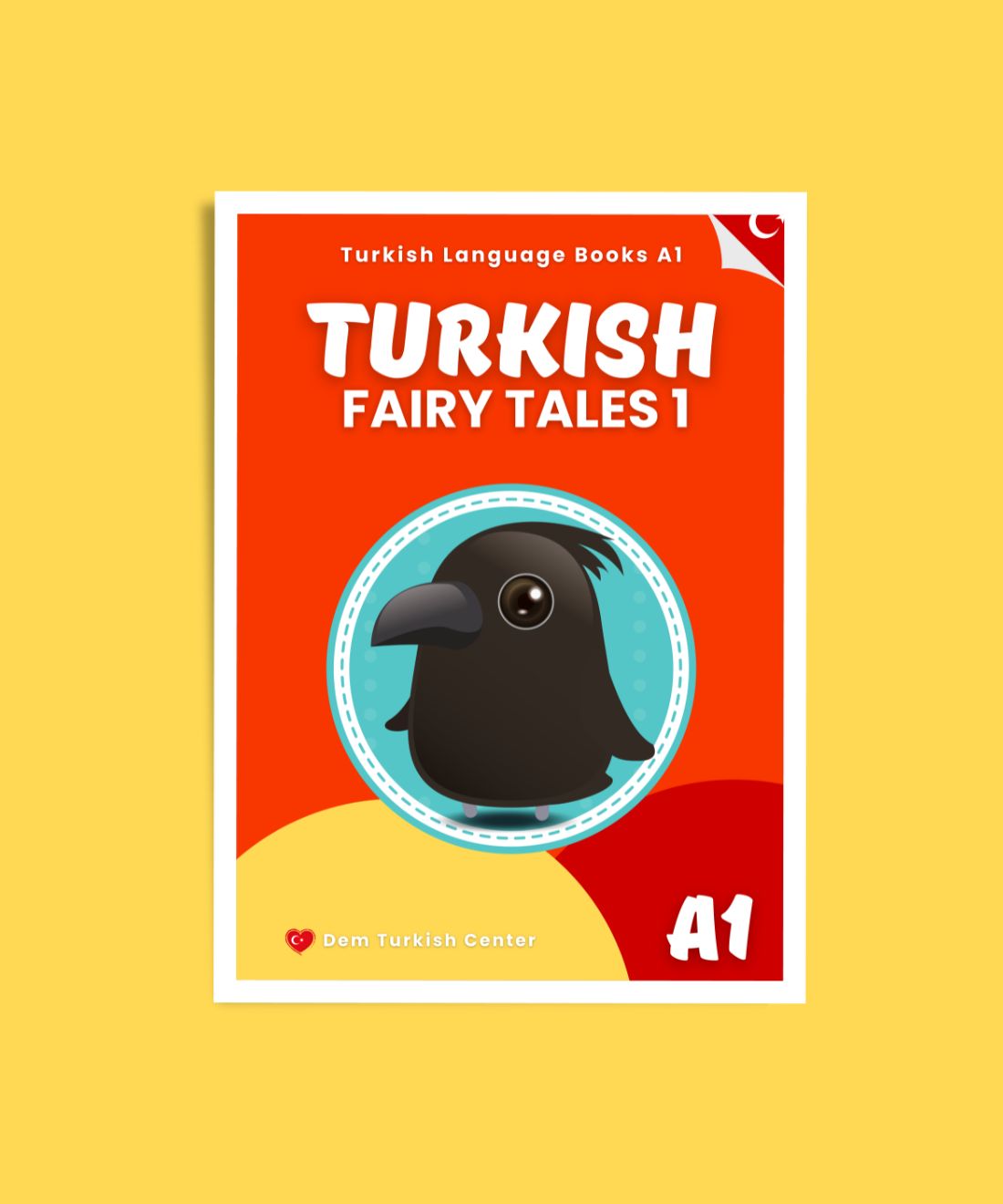
25 Most Common Turkish Verbs with Examples
We made a list of 25 most common Turkish verbs with English translations and example sentences. Simply learn the Turkish verb with English translations, read the example sentences and try to make your own sentences.
If you need help with your sentences in Turkish, you can use the comment form below so we can check and correct your sentences.
A-Z List of 25 Most Common Turkish verbs
Almak to take, buy, receive, have
The verb "almak" is conjugated (present, past, future) as:
- O alıyor. He is taking / takes it.
- O aldı. He took / has taken it.
- O alacak. He will / is going to take it.
The verb "almak" is used as:
- Ben bunu almak istiyorum. I want to take / buy this.
- Ben bir email aldım. I received an email.
- Ben markete gidip ekmek aldım. I went to the market and bought some bread.
- Bir kahve alabilir miyim? Can I have a coffee?
Typical words derived from this verb are:
- algı perception
- alıntı quotation, citation
- alışveriş shopping
Download Turkish Grammar Course 1 A1!
Take Turkish Grammar Classes A1 online!
Bakmak to look at, look after
The verb "bakmak" is conjugated (present, past, future) as:
- O bakıyor. He is looking / looks at it.
- O baktı. He look / has looked at it.
- O bakacak. He will / is going to look at it.
The verb "bakmak" is used as:
- Adam kadına baktı. The man looked at the woman.
- Ben çocuklara bakıyorum. I am looking at / looking after the children (depending on the context).
- Bana bak! Look at me!
- Bakar mısınız? Excuse me (Can you look at me)?
Typical words derived from this verb are:
- bakıcı babysitter
- bakım maintenance
Download Turkish Grammar Course 2 A2!
Take Turkish Grammar Classes A2 online!
Bilmek to know
The verb "bilmek" is conjugated (present, past, future) as:
- O biliyor. He is knowing / knows it.
- O bildi. He knew / has known it.
- O bilecek. He will / is going to know it.
The verb "bilmek" is used as:
- Sen Türkçe biliyor musun? Do you know Turkish?
- Bilmiyorum, hiç fikrim yok. I don't know, I have no idea.
- Ali nerede, biliyor musun? Do you know where Ali is?
- Neden, bilmiyorum, ama galiba bir problem var. I don't know why, but I think there is a problem.
Typical words derived from this verb are:
- bilge wise
- bilgi information, knowledge
- bilim science
Çalışmak to work
The verb "çalışmak" is conjugated (present, past, future) as:
- O çalışıyor. He is working / works.
- O çalıştı. He worked / has worked.
- O çalışacak. He will / is going to work.
The verb "çalışmak" is used as:
- Ben çalışmak zorundayım. I have to work.
- Sen günde kaç saat çalışıyorsun? How many hours a day do you work?
- Sen hafta sonları çalışıyor musun? Do you work at the weekend?
- Ali tam zamanlı çalışıyor, ama Murat yarı zamanlı çalışıyor. Ali works full time, but Murat works part time.
Typical words derived from this verb are:
çalışkan hardworking
Çıkmak to leave
The verb "çıkmak" is conjugated (present, past, future) as:
- O çıkıyor. He is leaving / leaves.
- O çıktı. He left / has left.
- O çıktı. He will / is going to leave.
The verb "çıkmak" is used as:
- Ben saat 5'te işten çıkıyorum. I leave work at 5 o'clock.
- Biz bu akşam dışarı çıkıyoruz. Sen de gelmek ister misin? We are going out this evening. Would you like to come with us?
- Biz bu akşam yemeğe çıkıyoruz. We are going for lunch this evening.
- Ben bu yaz tatile çıkıyorum. Tatilde tura çıkacağım. I am going on vacation this summer. I am going to go on tours.
Typical words derived from this verb are:
- çıkış exit
- çıktı print out
Demek to say; mean
The verb "demek" is conjugated (present, past, future) as:
- O "..." diyor. He is saying / says "...".
- O "..." dedi. He said / has said "...".
- O "..." diyecek. He will / is going to say "...".
The verb "demek" is used as:
- Ne demek? What does it mean?
- İngilizcede "kitap" ne demek? What does "kitap" mean in English?
- Ben "Merhaba," dedim. I said "Hello".
- Ali "Ben tatile çıkıyorum," dedi. Ali said "I am going on holiday".
- Ne dedin? What did you say?
- Ne diyorsun? What do you say / are you saying?
Düşünmek to think
The verb "düşünmek" is conjugated (present, past, future) as:
- O düşünüyor. He is thinking / thinks.
- O düşündü. He thought / has thought.
- O düşünecek. He will / is going to think.
The verb "düşünmek" is used as:
- Ben düşünüyorum ki, o ... I think that he ...
- Ben düşündüm ki, o ... I thought that he ...
- Ben bu yaz Marmaris'e gitmeyi düşünüyorum. I am thinking of going to Marmaris this summer.
- Ben şimdi seni düşünüyorum. I am thinking of you now.
- Ne düşünüyorsun? What are you thinking now?
- İstanbul hakkında ne düşünüyorsun? What do you think about Istanbul?
Typical words derived from this verb are:
- düşünce thought
- düşünceli thoughtful, polite
Etmek
This verb is used to make verbs from foreign words. For example:
- Teşekkür ederim. Thank you.
- Ben dans etmeyi seviyorum. I like dancing.
The verb "etmek" is conjugated (present, past, future) as:
- O ediyor.
- O etti.
- O edecek.
Gelmek to come
The verb "gelmek" is conjugated (present, past, future) as:
- O geliyor. He is coming / comes.
- O geldi. He came / has come.
- O gelecek. He will / is going to come.
The verb "gelmek" is used as:
- Buraya gel. Come here.
- Sen nereden geliyorsun. Where are you coming from?
- Ben işten geliyorum. I am coming from work.
- Biz sinemaya gidiyoruz. Sen de gelmek ister misin? We are going to the cinema. Would you like to come with us?
Typical words derived from this verb are:
gelenek custom, tradition
Gitmek to go
The verb "gitmek" is conjugated (present, past, future) as:
- O gidiyor. He is going / goes.
- O gitti. He went / has gone / been.
- O gidecek. He will / is going to go.
The verb "gitmek" is used as:
- Sen nereye gidiyorsun? Where are you going?
- Ben markete gidiyorum. I am going to the market.
Typical words derived from this verb are:
- giderek by going, gradually
- gidici goer, about to die
Görmek to see
The verb "görmek" is conjugated (present, past, future) as:
- O görüyor. He is seeing / sees.
- O gördü. He saw / has seen.
- O görecek. He will / is going to see.
The verb "görmek" is used as:
- Sen ne gördün? What did you see?
- Ben dün sinemada Ali'yi gördüm. I saw Ali at the cinema yesterday.
- Gördün mü, bizim takım kazandı. Did you see (You see), our team won the game (as I told you).
Typical words derived from this verb are:
- görsel visual
- görgü social manner
- görüntü vision
- öngörü prediction
İçmek to drink, smoke, have
The verb "içmek" is conjugated (present, past, future) as:
- O içiyor. He is drinking / drinks.
- O içti. He drank / has drunk.
- O içecek. He will / is going to drink.
The verb "içmek" is used as:
- Ben kahve içiyorum. I am drinking coffee.
- Sen kahve içmek ister misin? Would you like to drink coffee?
- Sen sigara içiyor musun? Do you smoke?
- O çorba içiyor. He is having a soup.
Typical words derived from this verb are:
- içecek beverage, non-alcoholic drink
- içki alcoholic drink
İstemek to want
The verb "istemek" is conjugated (present, past, future) as:
- O istiyor. He is wanting / wants.
- O istedi. He wanted / has wanted.
- O isteyecek. He will / is going to want.
The verb "istemek" is used as:
- Ben bir kahve istiyorum. I want a coffee.
- Ben bir kahve içmek istiyorum. I want to drink a coffee.
- Sen bir kahve içmek ister misin? Would you like to drink a coffee?
Typical words derived from this verb are:
- istek intention, wish
- isteyerek by wanting, on purpose
İzlemek to follow, watch
The verb "izlemek" is conjugated (present, past, future) as:
- O izliyor. He is watching / watches.
- O izledi. He watched / has watched.
- O izleyecek. He will / is going to watch.
The verb "izlemek" is used as:
- Polis arabayı izledi. The police followed, chased the car.
- Ben bir film izliyorum. I am watching a film.
- Ben film izlmeyi seviyorum. I like watching a film.
- Sen ne çeşit / nasıl filmler izliyorsun? What kind of films do you watch?
Typical words derived from this verb are:
izleyici viewer, audience
Konuşmak to speak, talk
The verb "konuşmak" is conjugated (present, past, future) as:
- O konuşuyor. He is speaking / speaks.
- O konuştu. He spoke / has spoken.
- O konuşacak. He will / is going to speak.
The verb "konuşmak" is used as:
- Sen hangi dilleri konuşuyorsun? What languages do you speak?
- Siz ne hakkında konuşuyorsunuz? What are you talking about?
- Ben Ali ile futbol hakkında konuşuyorum. I am talking to Ali about footbal.
Typical words derived from this verb are:
konuşkan talkative
Okumak to read
The verb "okumak" is conjugated (present, past, future) as:
- O okuyor. He is reading / reads.
- O okudu. He read / has read.
- O okuyacak. He will / is going to read.
The verb "okumak" is used as:
- Sen ne okuyorsun? What are you reading?
- Sen ne çeşit / nasıl kitaplar okumayı seviyorsun? What kind of books do you like reading?
- Sen üniversitede ne okudun? What did you study (read) at the university?
Typical words derived from this verb are:
okuyucu, okur reader
Olmak to be, become, happen
The verb "olmak" is conjugated (present, past, future) as:
- O oluyor. He is becoming / becomes.
- O oldu. He became / has become.
- O olacak. He will / is going to become.
The verb "olmak" is used as:
- Ben mutlu olmak istiyorum. I want to be happy.
- Ben bir doktor olmak istiyorum. I want to become a doctor.
- Ne oluyor? What is happening?
- Ne oldu? What happened / has happened?
- Ne olacak? What will happen/ is going to happen?
Typical words derived from this verb are:
- olgu phenomenon, matter of fact
- olgun mature
Oturmak to sit; reside
The verb "oturmak" is conjugated (present, past, future) as:
- O oturuyor. He is sitting / sits.
- O oturdu. He sat / has sat.
- O oturacak. He will / is going to sit.
The verb "oturmak" is used as:
- Ben buraya oturabilir miyim? Can I sit here?
- Sen nerede oturuyorsun? Where do you live / reside / are you located?
- Ben İstanbul'da yaşıyorum. İstanbul'da Kadıköy'de oturuyorum. I live in Istanbul. I live / am located in Kadikoy in Istanbul.
Oynamak to play
The verb "oynamak" is conjugated (present, past, future) as:
- O oynuyor. He is playing / plays.
- O oynadı. He played / has played.
- O oynuyor. He will / is going to play.
The verb "oynamak" is used as:
- Çocuklar bahçede futbol oynuyor. The children are playing footbal in the garden.
- Sen benimle tavla oynar mısın / oynamak ister misin? Do you want to play backgammon with me?
Typical words derived from this verb are:
- oyun play, game
- oyuncu player, actor
Öğrenmek to learn; find out
The verb "öğrenmek" is conjugated (present, past, future) as:
- O öğreniyor. He is learning / learns.
- O öğrendi. He learned / has learned.
- O öğrenecek. He will / is going to learn.
The verb "öğrenmek" is used as:
- Ben bir süredir Türkçe öğreniyorum. I have been learning Turkish for a while.
- Ben Türkçe öğrenmeyi seviyorum. I like learning Turkish.
- Türkçe öğrenmek biraz zor. It's a little difficult to learn Turkish.
Typical words derived from this verb are:
- öğrenci student, learner
- oğrenim education, training
Sevmek to like, love
The verb "sevmek" is conjugated (present, past, future) as:
- O seviyor. He is loving / loves.
- O sevdi. He loved / has loved.
- O sevecek. He will / is going to love.
The verb "sevmek" is used as:
- Ben seni seviyorum. I love you.
- Sen beni seviyor musun? Do you love me?
- Ben futbolu seviyorum. I like football.
- Ben futbol oynamayı seviyorum. I like playing football.
- Sen ne yapmayı seviyorsun? What do you like doing?
- Sen boş zamanlarında ne yapmayı seviyorsun? What do you like doing in your free times?
Typical words derived from this verb are:
- sevgi love
- sevgili dear, darling
Sürmek to drive, ride; take, last
The verb "sürmek" is conjugated (present, past, future) as:
- O sürüyor. He is driving / drives.
- O sürdü. He drove / has driven.
- O sürecek. He will / is going to drive.
The verb "sürmek" is used as:
- Sen araba sürebilir misin? Can you drive a car?
- Sen bisiklet sürebilir misin? Can you ride a bicycle?
- Yolculuk kaç saat sürüyor? How many hours does the journey take?
- Otobüsle İstanbul'dan Ankara'ya gitmek ne kadar sürüyor? How long does it take to get to Ankara from Istanbul by bus?
Typical words derived from this verb are:
sürücü driver, rider
Vermek to give
The verb "vermek" is conjugated (present, past, future) as:
- O veriyor. He is giving / gives.
- O verdi. He gave / has given.
- O verecek. He will / is going to give.
The verb "vermek" is used as:
- Bana bir kalem verebilir misin? Can you give me a pen?
- Çok çalıştık, biraz ara verelim. We have worked hard, let's take (give) a break.
- Ben arkadaşlarıma hediye vermeyi seviyorum. I like giving presents to my friends.
Typical words derived from this verb are:
- alışveriş shopping
- vergi tax
Yapmak to do, make
The verb "yapmak" is conjugated (present, past, future) as:
- O yapıyor. He is doing / does.
- O yaptı. He did / has done.
- O yapacak. He will / is going to do.
The verb "yapmak" is used as:
- O spor yapıyor. He is doing sports.
- O kahve yapıyor. He is making coffee.
This verb is also translated as “To have” in some cases. For example:
- O kahvaltı yapıyor. He is is having / eating breakfast.
- O tatil yapıyor. He is having a vacation.
Typical words derived from this verb are:
yapı structure
Yaşamak to live; experience
The verb "yaşamak" is conjugated (present, past, future) as:
- O yaşıyor. He is living / lives.
- O yaşadı. He lived / has lived.
- O yaşayacak. He will / is going to live.
The verb "yaşamak" is used as:
- Sen nerede yaşıyorsun? Where do you live?
- Ben İstanbul'da yaşıyorum. I live in Istanbul.
- Biz problemler yaşadık. We experienced / went through some problems.
Typical words derived from this verb are:
- yaşam life
- yaşamsal vital
Yazmak to write
The verb "yazmak" is conjugated (present, past, future) as:
- O yazıyor. He is writing / writes.
- O yazdı. He wrote / has written.
- O yazacak. He will / is going to write.
The verb "yazmak" is used as:
- Sen ne yazıyorsun? What are you writing?
- Ben arkadaşıma bir mektup yazıyorum. I am writing a letter to my friend.
Typical words derived from this verb are:
- yazı text
- yazgı destiny, fate
Yemek to eat
The verb "yemek" is conjugated (present, past, future) as:
- O yiyor. He is eating / eats.
- O yedi. He ate / has eaten.
- O yiyecek. He will / is going to eat.
The verb "yemek" is used as:
- Sen ne yiyorsun What are you eating?
- Ben bir sandviç yiyorum. I am eating a sandvich.
Typical words derived from this verb are:
- yemek (cooked) meal, dish
- yiyecek food
We hope you like this short Turkish lesson about 25 most common Turkish verbs. Please use the comment form below if you have questions or need help.














